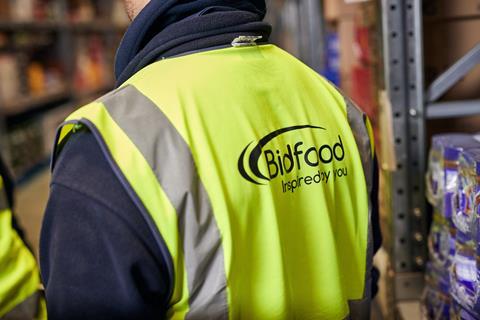
Bidfood has unveiled a series of initiatives aimed at creating a more sustainable and efficient business, as the wholesaler calls for greater industry collaboration.
In a bid to address issues of food waste and water usage within the foodservice sector, the wholesaler’s development chefs and sustainability team have launched a food waste recipe book.
The ‘Waste Not, Saves Lots' book includes 15 recipes and expert guidance to help customers cut costs and utilise food waste.
It rolls out alongside ongoing food waste initiatives at Bidfood, including setting targets at boardroom level and the installation of technology to move short-dated food around its warehouses more efficiently.
The wholesaler is also removing best before dates with its fresh produce arm, Oliver Kay, and is continuing its charity partnerships, having recently hit a milestone with FareShare in redistributing three million meals.
Bidfood is also urging greater collaboration across the supply chain to improve foodservice. It comes as research shows that 27% of consumers think the government is responsible for ensuring food and drink eaten out of home is sustainable, with 32% believing this responsibility lies with the venue and 16% with suppliers.
In improving efficiency across the business, the wholesaler has also recently made steps to enhance the customer experience through technology.
Previously, customers could sign up for text or email alerts, informing them when a driver leaves a depot, with a link to a map to track them on their route. Now, customers will receive a notification when their delivery is next, and another when their order has arrived on site.
“As the foodservice industry navigates mounting pressures from sustainability demands to operational challenges, we believe the future lies in smarter, more collaborative solutions," said Bidfood sales and marketing director Tim Adams.
“We’re empowering our customers to drive meaningful change, reduce waste, cut costs and build further resilience. Together, we can shape a more efficient future for foodservice and be a positive force for change.”


















No comments yet